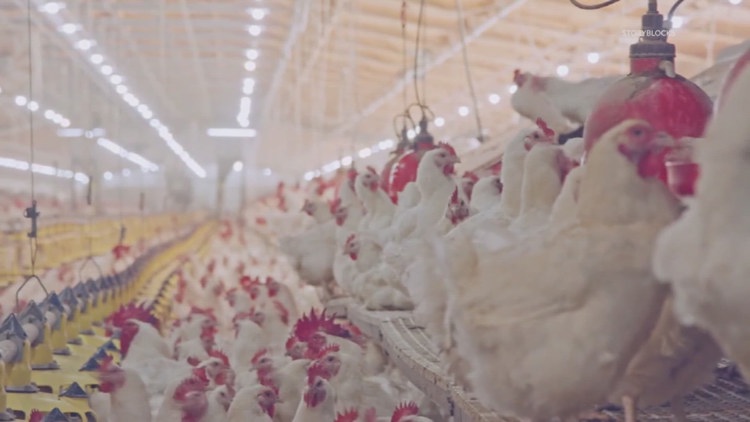CULLMAN, Ala. — The Alabama Department of Agriculture and Industries (ADAI) and the USDA’s Animal and Plant Health Inspection Service (APHIS) have confirmed cases of bird flu on a commercial chicken farm in Cullman County and in a backyard flock in Pickens County.
Samples from the affected birds were tested and confirmed positive at the Alabama State Diagnostic Laboratory in Auburn.
APHIS says they are working closely with state animal health officials in Alabama on a joint response plan. State officials have quarantined the affected farms, and all birds on the properties (about 116,000 in Cullman and around 70 in Pickens) were depopulated to prevent the spread of the disease. Additionally, all poultry within a 10-kilometer radius (6.2 miles) of the Cullman site are being tested and monitored.
As part of existing bird flu response plans, federal and state partners are increasing surveillance and testing in areas around the affected flocks.
The United States has one of the strongest bird flu monitoring programs in the world. ADAI and USDA are actively keeping an eye on the disease in commercial poultry operations, backyard flocks, live bird markets, and migratory wild bird populations.
According to the U.S. Centers for Disease Control, bird flu is considered low risk to human health but is highly contagious to other birds, including both commercial and backyard poultry. While the virus is not seen as a food safety threat, infected birds do not enter the food supply.
ADAI Commissioner Rick Pate and State Veterinarian Dr. Tony Frazier release the following statement, “It is critical for commercial and backyard poultry operations to remain alert and closely monitor the health of their poultry. The detection of HPAI in Cullman and Pickens Counties reinforces the need to continue following strict biosecurity measures, including keeping birds enclosed without access to wild birds or other domestic flocks.”
Symptoms of bird flu (highly pathogenic avian influenza) in poultry include:
- Sudden increase in bird deaths in your flock
- Sneezing, gasping for air, coughing, and nasal discharge
- Watery and green diarrhea
- Lack of energy and poor appetite
- Drop in egg production or soft, thin-shelled, misshaped eggs
- Swelling of the head, eyelids, comb, wattles, and hocks
- Purple discoloration of wattles, comb, and legs
- Ruffled feathers, listlessness, and lethargy
ADAI urges both the commercial poultry industry and backyard flock owners to enhance biosecurity measures to protect their birds from bird flu.
Biosecurity measures can include:
- Cleaning vehicles and equipment
- Limiting unnecessary visitors
- Sanitizing shoes in clean foot baths
- Changing clothes after contact with birds
People should avoid contact with sick or dead poultry or wildlife. If contact occurs, wash your hands and change clothes before handling any poultry or wild birds. For more information on biosecurity measures, visit here.
Report sick or dead wild birds to the Alabama Department of Natural Resources and Conservation at 334-242-3469. Report sick or dead domestic birds and poultry to ADAI’s Poultry Unit at 334-240-6584.
For more information about bird flu or recent detections, visit here.



